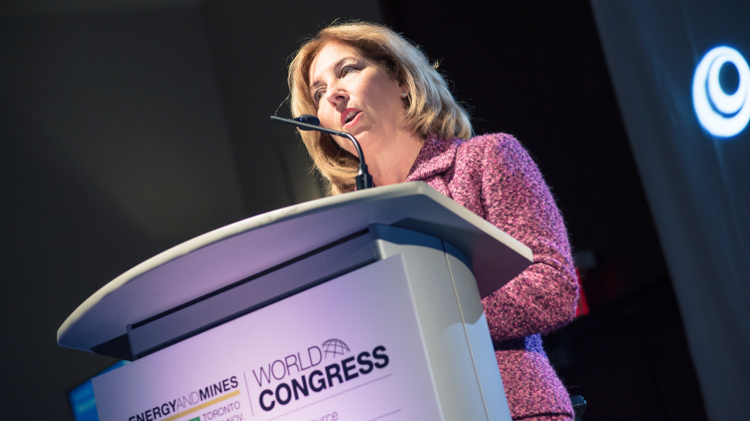An international team of researchers from Ontario, Quebec, the United States, and Australia will receive $3.7 million over four years to characterize bacteria in mining wastewaters as part of a Genome Canada funding competition. The results of the competition, which officially began in 2015, were announced on Dec. 8.
The project, spearheaded by University of Toronto researcher Lesley Warren, was one of four mining-related finalists. Genome Canada awarded a total of $110 million to 13 projects across the country, all related to natural resources and the environment, through the competition.
The team’s study of the combined microbial and geochemical characteristics of wastewater at multiple mines has never been done before, Warren said.
Not only will they try to determine what bacteria may be capable of doing by studying their genetic makeup, but the team will also evaluate how a wastewater’s population of bacteria changes throughout the year and how it differs from wastewater in other climates. Warren said mine operators could potentially request a profile of their own site’s wastewater from a lab, based on the team’s work, in five years.
Warren said she hopes the work will help miners anticipate bacterially- driven wastewater management problems before they arise. About 70 per cent of all operating mines may be at risk of acid mine drainage, she said.
“Right now, the industry knows that issues that start to arise [with wastewaters] are often bacterially linked” and are especially linked to bacteria that feed on sulfur, she said. “The current problem is that if there is a microbial problem, it is a black-box issue. There really is a big question mark as to why it happens.”
The researchers must periodically update a Genome Canada oversight panel on their progress over the next four years to receive additional installments of their funding.
In addition to funding from the federal and Ontario governments, Glencore, Hudbay and Rambler Metals and Mining are contributing support to Warren’s project. (All three companies comply with existing wastewater regulations, Warren said.)
“For this project to do so well and to be funded – really, it’s a sign that the industry is interested in the technology and can see the value,” said Karen Dewar, the director of genomics programs at Genome Canada.
A team of assessors reviewed proposals submitted to Genome Canada based on the quality of the research question, the potential social and economic benefits and the financing and management structure. Warren’s proposal scored well in all areas, Dewar said. “The science was absolutely thought to be internationally competitive.”



